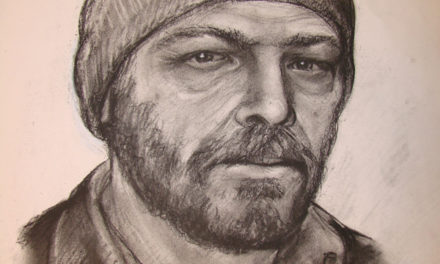Members of the Emory community attended Distinguished Writer-in-Residence Salman Rushdie’s conversation with Associate Professor in the Department of English Deepika Bahri on his most recent novel Joseph Anton: A Memoir yesterday as part of the weeklong India Summit.
Emory’s India Summit, formerly known as the “Emerging India Summit,” launched in 2010 with the purpose of drawing together business leaders, foreign policy experts, government officials, medical experts and scholars from a diverse range of fields.
Launched in part by the Halle Institute for Global Learning, yesterday’s India Summit discussion allowed Rushdie to share some of his experiences about his time in exile after publishing the infamous Satanic Verses in 1988.
For several years, Rushdie lived under the protection of the British police where he assumed the alias Joseph Anton – fused from the names of novelists Joseph Conrad and Anton Chekhov, respectively.
According to Rushdie, many of the Muslim youths who protested against The Satanic Verses and maintained that Rushdie did not have the right to publish a work that was profoundly “blasphemous” had never read the novel.
“Who has the right to tell a story and who has the right to decide in what terms that story can be told?” Rushdie asked. “Grand narrative of which religion is clearly one are the stories that are part of our heritage and in my view belong to all of us and all of us have the right to tell a story and all of us have the right to tell the story in any way we choose.”
Rushdie’s time in exile and the alias of Joseph Anton is an identity that he readily shed as soon as he came out of hiding, he explained at the summit.
With macabre enthusiasm, Rushdie deemed Joseph Anton “dead as a doornail,” whom he “killed with great pleasure, slowly and with pain.”
The identity, Rushdie said, was one he never wanted to assume because that identity represented a repressed episode in his life.
Rushdie compared his time in hiding with the currently tense environment surrounding free speech in India.
Using the recent national case that occurred in New Delhi – where a 28-year-old woman was raped and killed – Rushdie pointed out how officials are blaming the youth rather than encouraging a dialogue that would bring these issues to the forefront of people’s minds.
“Instead of saying this terrible thing has happened, there’s an attempt to criminalize young people for being young,” he said. Recently, the Indian government has forbidden the public from repeating the name of the raped woman – Jyoti Singh Pandey – whose injuries sustained after rape left only five percent of her intestines intact.
“Not to say her name is a way of forgetting, marginalizing and minimizing,” Rushdie said. “If someone is nameless, they very rapidly become forgotten.”
Rushdie cited the lack of dialogue to a narrow focus in news where the more critical newspapers published in India are in the English language, rather than India’s official language: Hindi.
College senior Ariane Noar said she thought the discussion provided a sense of what issues he intellectually grappled with.
“His stories about dealing with the fatwa were very engaging and it was also great to hear his opinions about India and its current state, both intellectually and politically,” Noar said.
All India Summit events for Friday, February 21 will take place in the Claudia Nance Rollins Building auditorium. For more information, visit halleinstitute.emory.edu/india-summit.
– Contact Roshani Chokshi at rhchoks@emory.edu
The Emory Wheel was founded in 1919 and is currently the only independent, student-run newspaper of Emory University. The Wheel publishes weekly on Wednesdays during the academic year, except during University holidays and scheduled publication intermissions.
The Wheel is financially and editorially independent from the University. All of its content is generated by the Wheel’s more than 100 student staff members and contributing writers, and its printing costs are covered by profits from self-generated advertising sales.



